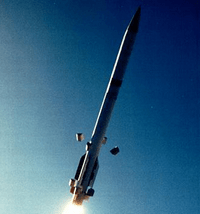Last Friday, the U.S. Department of Defense announced the approval of a major arms sales package for Taiwan. The $6.4 billion deal includes 114 Patriot advanced capability (PAC-3) missiles, 60 Blackhawk helicopters, and two Osprey-class mine-hunting ships, among other items. The Obama administration is still considering Taiwan's request for the F-16 C/Ds that it wants to replace some of its aging fighters.
As it has in the past, Beijing quickly expressed its indignation through multiple channels. Foreign Ministry officials denounced the arms sales as interference in China's internal affairs and China's official media warned that the decision would "inevitably cast a long shadow on Sino-U.S. relations."
Beijing also retaliated by suspending U.S.-China military-to-military relations, a move that was widely expected since military ties were also put on hold for about five months after the last major U.S. sale of weapons to Taiwan in October 2008. This time, however, an increasingly assertive China is warning of broader consequences for bilateral relations, including placing sanctions on U.S. contractors involved in the deal, some of whom have civilian contracts in China. Beijing's response may also include turning a cold shoulder to U.S. requests for cooperation on other international problems.

